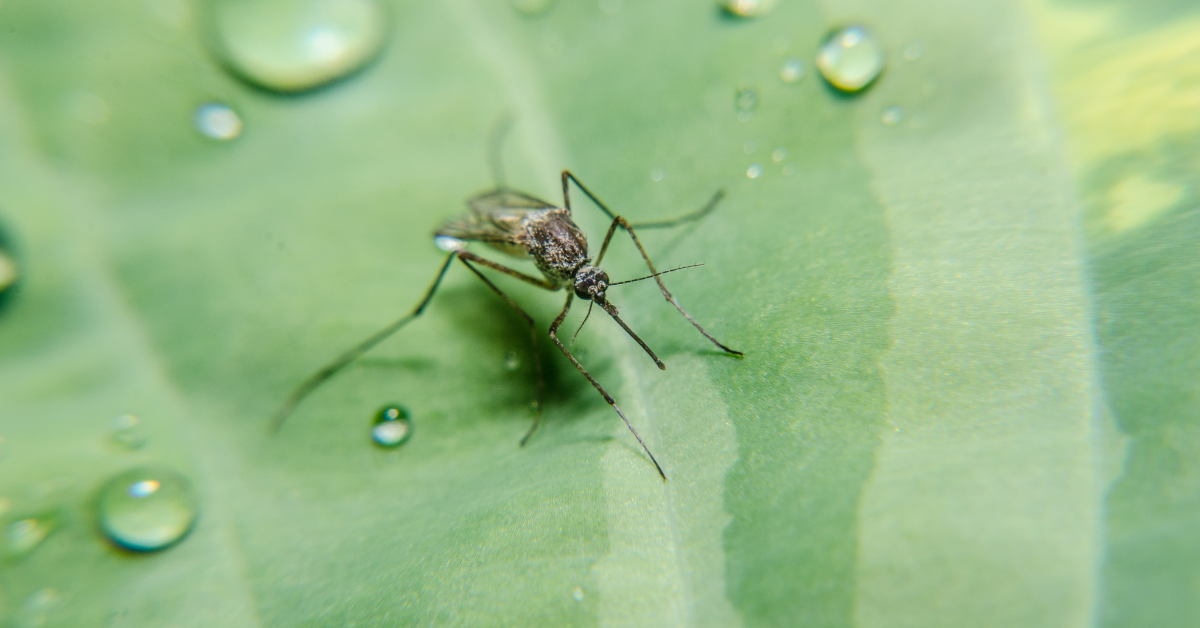
Have you ever wondered what happens to those pesky mosquitoes that relentlessly buzzed around during the summer months? Do they simply disappear, or do they have some hidden winter survival strategies? Let’s dive into what actually happens to mosquitoes in the winter months and uncover the truth about their wintertime antics.
Since mosquitoes are cold-blooded, they are most active when temperatures are around 80 degrees Fahrenheit but remain active as long as temperatures stay above 50 degrees Fahrenheit. Once the weather is too cold for mosquitoes, where do they go?
Mosquito Lifecycle
The mosquito lifecycle is broken down into four stages:
- Egg
- Larva
- Pupa
- Adult
It all begins when adult female mosquitoes lay eggs, which are laid in or near standing water. These eggs hatch into larvae, which spend their time in the water. As they grow, they transform into pupae, then into adult mosquitoes. Once they’ve fulfilled this cycle, adult mosquitoes can live for several weeks to several months, depending on the species and environmental conditions. The mosquito’s life cycle continues through laying eggs, starting the process all over again.
Do Mosquitoes Die in the Winter?
Although mosquitoes prefer the warm temperatures of the summer months, they have developed different strategies to survive the winter. What happens to mosquitoes in the winter depends on their species, location, and environmental conditions.
Mosquitoes are cold-blooded and cannot regulate their body temperature. Their body temperature is essentially the same as their surroundings. Many mosquito species enter a state of hibernation, known as diapause, during the winter months. During this period, their metabolic activity slows down significantly, allowing them to conserve energy and withstand cold temperatures. They find sheltered places like hollow logs, burrows, or other protected areas to escape the cold. Sometimes, mosquitoes will make their way into your home to seek shelter for hibernation, in areas like your basement or attic.
In spring, female mosquitoes emerge from hibernation, find a meal, and lay their eggs.
Other species of mosquitoes, like the Aedes, lay winter-hardy eggs that can survive freezing temperatures. Eggs can survive in as little as half an inch of water, so it’s crucial to continue emptying standing water around your home even in the winter months. Once spring and the rain come, the eggs hatch and complete their life cycle.
Although it seems mosquitoes suddenly disappear, they aren’t really leaving your yard when the winter season arrives. You might not notice them, but they’re still there, waiting for warm weather to return. Eliminating dormant eggs by dumping standing water can give you a head start on controlling the mosquito population in the spring and summer.

Early Prevention is Key
When you feel the temperatures getting warmer, call MissQuito! Hiring a professional mosquito control company can be a proactive step to prevent mosquito problems when temperatures start to rise, especially if you live in an area prone to mosquito infestations. Though it might feel early, mosquitoes become more active as temperatures rise, and they can breed rapidly. By calling a professional early in the season, you can prevent a mosquito infestation from taking hold in your yard.
